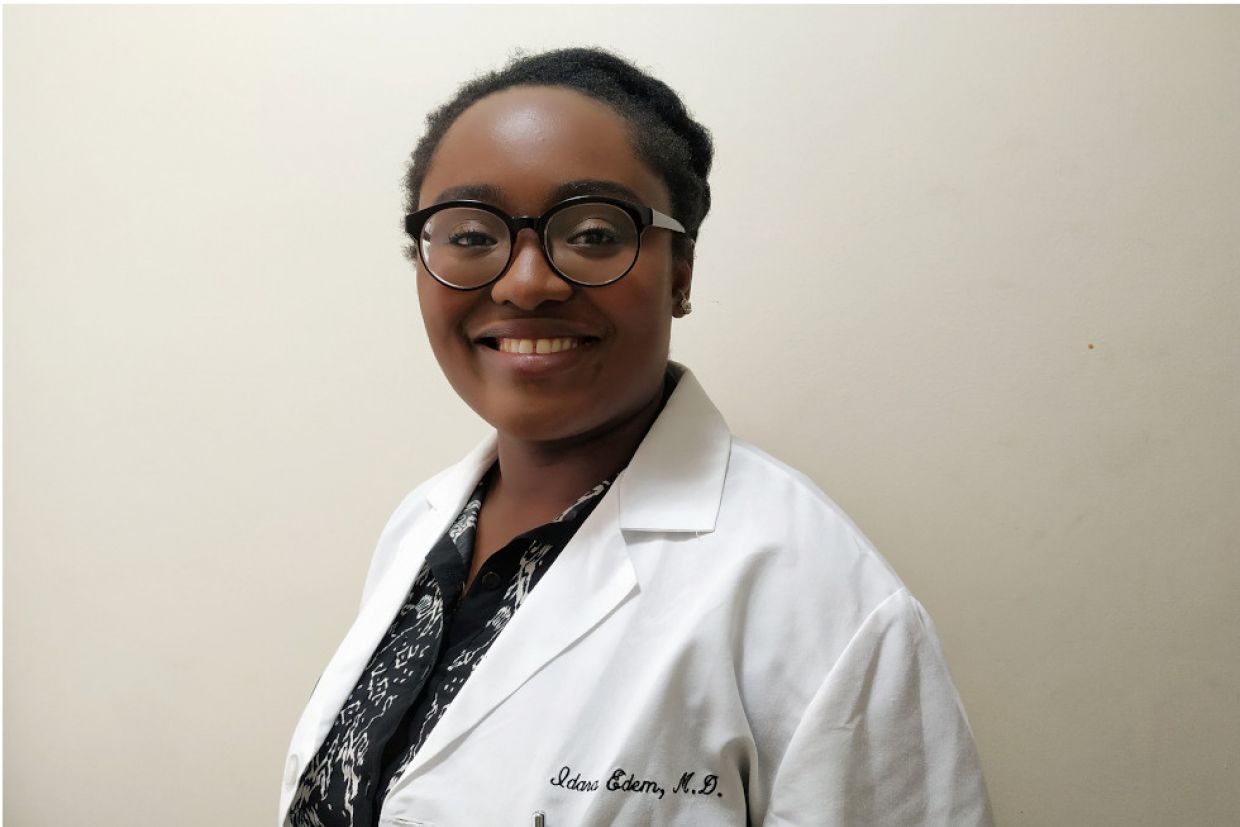Neurosurgeon Idara Edem, Meds’13, has always been obsessed with the complex nature of the brain. In high school, she knew she wanted a career that involved studying one of the body’s most mysterious organs.
“It influences our lives in so many ways. It controls everything but we know so little about it,” says Dr. Edem. “Once I decided (studying the brain) was something I wanted, I wasn’t going to let any barriers affect me. You are always going to have people who think you can’t do something regardless of how good your grades are or what your interests are.”
Today, Dr. Edem, who emigrated from Nigeria when she was 13 years old, has overcome many barriers to (maybe) make medical history. She might be Canada’s first Black female neurosurgeon.
She can’t say it with 100 per cent certainty, but research seems to back it up. Her sister, Faith, contacted some Canadian medical and neuroscience organizations who said they were unaware of other Black female Canadian neurosurgeons but couldn’t officially confirm it because they don’t keep track of racial data of neurosurgeons.
Being a female neurosurgeon in Canada – let alone Black – is rare. According to a CBC December 2019 news story, there were 333 practicing neurosurgeons in Canada and only 36 were women. The first Black female neurosurgeon in the United States was Dr. Alexa Canady, who started practicing medicine in 1981. Dr. Edem has had colleagues who have been working since the 1980s and none of them can recall a Black female neurosurgeon in Canada.
Dr. Edem has a mix of emotions about her (probable) historic achievement. She believes in being a role model and hopes her story will inspire other Black Canadians and women to become doctors and surgeons. But being the first also makes her a little sad.
“The more important question is why am I the first?” says Dr. Edem. “What are the structural barriers and systemic issues that have prevented others over the years from making this a goal?”
She points to various systematic social and financial barriers to medical education that happen even before applying to medical school. For example, many Black youth grow up having rarely been treated or mentored by a Black doctor. The lack of representation means many don’t look at medicine as a feasible career, so they pick other fields to study when they reach university.
“Mentorship and sponsorship are key at this time. Due to a lack of representation and support, many Black learners don't even get to the stage of applying for medical school,” says Dr. Edem, who was one of only three Black students in her medical class.
She hopes more Black and female Canadians join her on the front lines of health care. She is trying to encourage others by giving talks to groups such as the Association of Black Aspiring Physicians and mentoring colleagues who need help navigating the unique challenges of being a Black and/or female surgeon.
“Twenty years down the line, I want to make sure neurosurgeons look more like the patient populations they represent – more diverse and more multicultural,” says Dr. Edem, who is now practicing in Michigan but hopes to return to practice in Canada soon.


